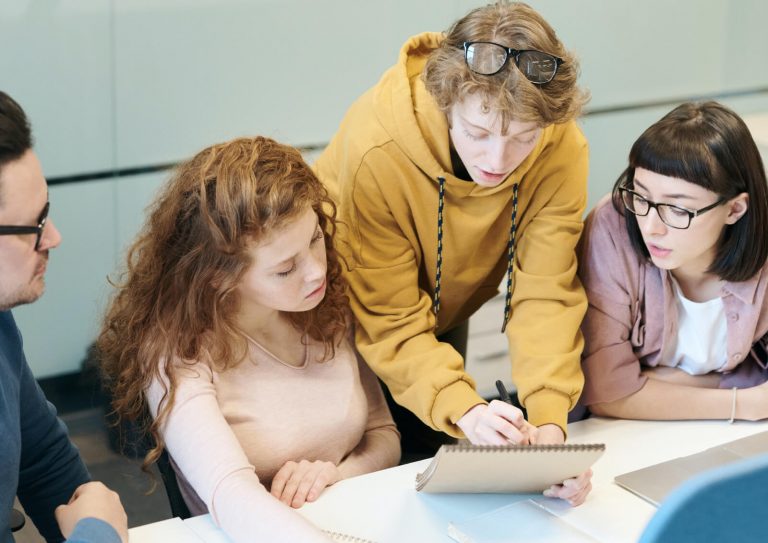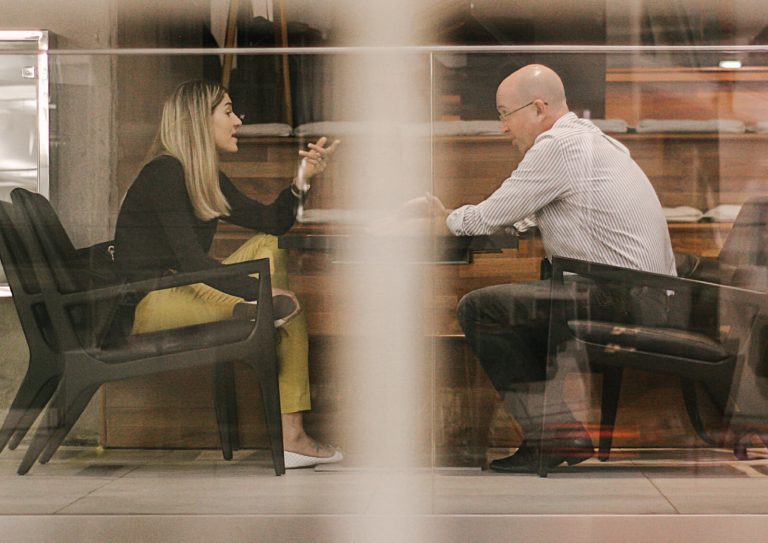As a clinical psychologist and CEO of Relationships Australia NSW, an organisation that has 75 years’ experience helping people navigate difficult conversations, I’ve witnessed the profound impact that conflict can have on our lives. Whether it’s with our partner, family members, kids, friends, or even colleagues, conflict can cause people immense stress and worry.
Workplace conflict, in particular, has an interesting way of creeping up on us. It can start as a minor issue, but when not dealt with or managed adequately, it can fester or snowball. The next time an incident happens, it can add to the pile, making us less resilient or less confident in tackling it. Colleagues around us might start to notice and weigh in with their own experiences and suggestions. Some of us might experience anxiety or stress about going to work, a decrease in productivity, a change in our previously positive attitude, an inability to switch off from work, difficulty sleeping, and find it impacts our personal and professional relationships. For some, the only way to resolve the issue is to leave.
Finding ourselves in the role of ‘Accidental Mediator’
Despite most adults spending much of their lives at work and with our colleagues, we’re generally underprepared in how to handle conflict in these settings.
I remember an incident earlier in my career that really drove this home for me. I was leading a team of about 30, and two of my senior staff had a disagreement over something that seemed trivial at first – a misunderstanding about the use of resources. But as time went on, what started as a very solvable problem turned into tenseness that everyone in the office could feel. Each person doubled-down on their point of view, and their colleagues fell into alliances behind them. I was caught in the middle. Each ‘side’ wanted me to back them. Should I step in and help them work it out? Was it even my place or someone else’s job? What if my involvement made it worse, or they turned on me!

Eventually, I decided to bring the two of them together to talk. It wasn’t perfect, and it was certainly uncomfortable, but just having a conversation helped shift things in a better direction. That experience taught me that while conflict isn’t pleasant, it is an inevitable part of working life—and that addressing it sooner rather than later makes a big difference.
What informal mediation can look like
In many ways, we can all end up being ‘accidental mediators’ at some point. Even if you’re not a manager or work in HR, it’s likely you’ll find yourself in a situation where informal mediation skills might come in handy. It could be:
- Interactions in a meeting where things are a bit tense (this could also include external partners or contractors)
- A colleague dealing with a client or customer who is unhappy
- A small outburst from someone when they’re feeling stressed or under-pressure
- Two people reaching a crossroads and not knowing how to move forward
- Staff feeling resistance to change
- Social cliques or personality clashes affecting work
Why we need the right tools
The truth is – conflict isn’t going away. Globally, 85% of employees experience workplace conflict and in Australia, it’s estimated that over 100,000 working days are lost every year because of it. Those numbers aren’t just statistics—they represent real people, real stress, and real challenges.
Learning how to approach conflict in a constructive way isn’t just about resolution; it’s about transforming the workplace into an environment where open communication feels possible. It’s about having the skills to step in, when appropriate, and help guide a conversation rather than avoid it altogether.
How you can learn skills for the workplace
That’s why the team at Relationships Australia NSW has developed our Accidental Mediator program, a half-day workshop that gives people a practical toolkit for when they find themselves pulled into day-to-day conflict.
It’s not about turning everyone into a formal mediator, but about empowering people to have open and respectful conversations, break down silos, and have the confidence to step up. These skills can foster a culture where people feel more connected, supported, and capable of working through difficulties together.
We listened to our clients, partners, and own staff about what they most needed and wanted to learn. Throughout the course, which you can do in-person or online, you’ll learn how to identify the situations you can help in (and what ones should be left to the professionals), how to draw boundaries between yourself and others involved, and easy conversation starters and structures that you can use in real-time.
We also understand that every workplace is a little bit different and might need customisations made for them. Maybe you’re a completely remote team and conflict transpires differently? Perhaps you’re a group of senior leaders who are managing significant internal change? We’re happy to work with you and your company to adapt our workshop so it has maximum impact and benefit.
In my experience, I know that conflict is part of life. We can’t entirely prevent it, but we can prevent and resolve minor disputes before they become a larger issue.
If you’re looking to upskill yourself or your team, registrations are now open for our first round of Accidental Mediator workshops. Be part of a new generation at work who resolve conflict effectively, while boosting morale and productivity.
Related Services & Workshops

Accidental Mediator
Accidental Mediator is a training workshop that gives your team the skills and confidence to effectively resolve conflict, tensions and misunderstandings in the workplace.

Effective Group Leadership
This workshop helps you develop leadership skills to facilitate more interactive and engaging group work in community and counselling settings.

Accidental Counsellor
Accidental Counsellor is a workshop to assist people who aren’t trained counsellors, but often find themselves in a counselling role “by accident”. You’ll learn how to support clients, friends, family, colleagues, and strangers in distress or experiencing a crisis.







